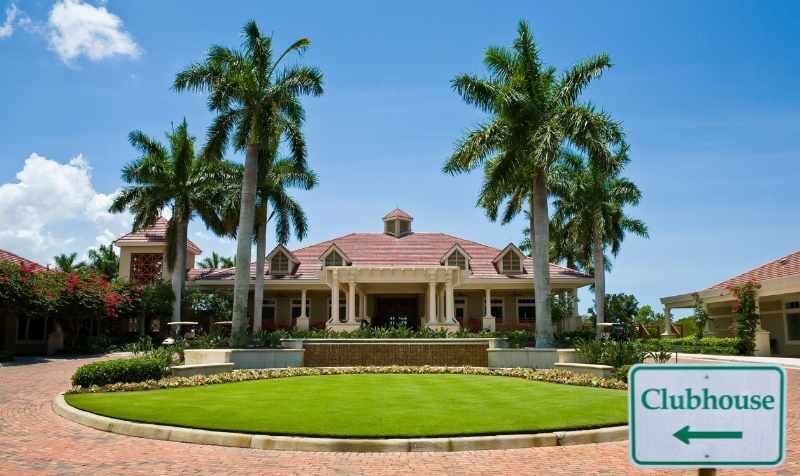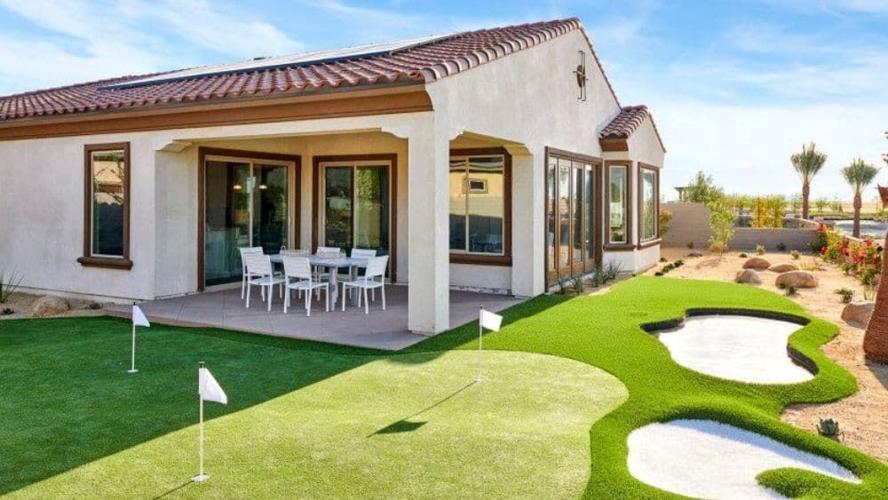
Living in a country club community evokes images of pristine golf courses, exclusive social events, and a lifestyle centered around leisure and luxury. For many, the idea of having resort-style amenities right outside their front door is the ultimate dream. However, this unique living arrangement is about more than just a beautiful home; it’s an investment in a specific and highly structured lifestyle.
Before you commit to buying a home in a country club, it’s crucial to look beyond the manicured lawns and sparkling pools. Understanding the financial obligations, rules, and social dynamics is essential to ensure this prestigious address aligns with your personal and financial goals. This guide will cover the key things you need to know, from membership fees and HOA rules to the distinct pros and cons of country club living.
The Financial Reality: It's More Than a Mortgage
The most significant distinction of country club living is the cost. Your financial obligations extend far beyond the price of the home itself. Failing to account for these ongoing fees is one of the biggest mistakes potential buyers make.
1. Mandatory Membership Fees
In most private country club communities, homeownership comes with a mandatory club membership. This is not an optional perk; it's a requirement tied to the property deed. These fees come in several forms:
Initiation Fee: This is a large, one-time payment required to join the club, which can range from $10,000 to over $100,000. Some memberships are "equity" memberships, meaning you may get a portion of that fee back when you sell, while others are non-refundable.
Annual Dues: These are recurring fees that cover the club's operational costs, including maintenance of the golf course, clubhouse, pools, and tennis courts. Annual dues can be substantial, often costing thousands of dollars per year, paid monthly, quarterly, or annually.
Food and Beverage Minimums: Many clubs require members to spend a certain amount of money at the club’s restaurants and bars each quarter or year. If you don't meet the minimum through regular dining, you will be billed for the difference.
2. Homeowners Association (HOA) Fees

In addition to club dues, you will also pay regular HOA fees. These cover the maintenance of common areas within the residential community, such as roads, landscaping, security gates, and community-wide amenities that are separate from the club itself. Be sure to clarify what is covered by club dues versus what is covered by the HOA to avoid surprises.
The Lifestyle: Living in a Social Bubble
Country club communities are designed to foster a tight-knit social environment. While this can be a major benefit for some, it's not the right fit for everyone. You are not just buying a home; you are joining a community with its own distinct culture and social calendar.
The Social Scene
Clubs typically host a packed schedule of events, including holiday parties, themed dinners, golf tournaments, tennis leagues, and charity galas. This provides an instant social life and an easy way to meet neighbors. If you are outgoing and enjoy structured social activities, this can be a fantastic way to build a community. However, if you are a more private person, you may feel pressure to participate or feel out of place if you choose not to.
The Expectation of Conformity
These communities often have an established social hierarchy and unwritten rules of etiquette. There can be an expectation to conform to the community’s norms in terms of dress code, social participation, and even the types of cars you drive. It's important to spend time in the community before buying—perhaps by visiting the clubhouse or talking to residents—to get a feel for the culture and see if it’s a place where you would feel comfortable.
The Rules and Regulations: Life Under the HOA
Country club communities are known for having some of the most stringent HOA rules and regulations. These are designed to maintain the community's pristine appearance and protect property values, but they can feel restrictive to some homeowners.
Strict Aesthetic Standards
HOAs in these communities regulate nearly every aspect of your property’s exterior. Common rules include:
Landscaping: Regulations on the types of plants you can use, how often your lawn must be mowed, and where you can place garden decor.
Exterior Paint Colors: A pre-approved palette of colors for your home’s exterior, trim, and front door.
Decorations: Strict rules about holiday decorations, including when they can be put up and taken down.

Parking: Restrictions on where you and your guests can park. Parking commercial vehicles or RVs in your driveway is almost always prohibited.
Before buying, you must obtain a copy of the HOA covenants and restrictions and read them carefully. An amazing house can become a frustrating living situation if the rules clash with your lifestyle.
Pros and Cons of Country Club Living
To make an informed decision, weigh the unique advantages and potential drawbacks of this lifestyle.
The Pros:
World-Class Amenities: You have access to golf courses, tennis courts, swimming pools, fitness centers, and fine dining just steps from your home.
Security: Most communities are gated and offer 24/7 security, providing a strong sense of safety.
Built-in Social Life: The club provides endless opportunities to socialize and make friends with like-minded neighbors.
Pristine Environment: The strict rules ensure that the entire community is beautifully maintained, which helps protect property values.
Convenience: With dining and recreation on-site, you may find you rarely need to leave the community.
The Cons:
High Costs: The combination of a mortgage, club dues, HOA fees, and spending minimums can make it a very expensive lifestyle.
Lack of Privacy: In a close-knit community, everyone knows everyone else’s business. Anonymity is not an option.
Restrictive Rules: The strict HOA regulations can limit your ability to personalize your property and live as you please.
Potential for Assessments: If the club or HOA needs to fund a major capital improvement, such as renovating the clubhouse or resurfacing the golf course, you could be hit with a large, unexpected special assessment.
Social Pressure: You may feel obligated to participate in social events and "keep up with the Joneses," which can be both time-consuming and expensive.
How to Decide if It's Right for You
Living in a country club community can be a dream come true for the right person. To determine if that person is you, ask yourself these honest questions:
- Does my budget truly support this lifestyle? Calculate the total monthly cost, including all fees and minimums, not just the mortgage.
- Will I actually use the amenities? If you're not an avid golfer, tennis player, or social butterfly, you'll be paying a premium for amenities you don't use.
- Does the community's culture fit my personality? Are you looking for an active, structured social life, or do you prefer more privacy and independence?
- Am I comfortable living with strict rules? Review the HOA documents thoroughly and decide if you can happily live within those boundaries.
By carefully considering these factors, you can move past the glossy brochures and make a decision that ensures your new home is not just a beautiful property, but the foundation for a lifestyle you will truly enjoy.




(0) comments
We welcome your comments
Log In
Post a comment as Guest
Keep it Clean. Please avoid obscene, vulgar, lewd, racist or sexually-oriented language.
PLEASE TURN OFF YOUR CAPS LOCK.
Don't Threaten. Threats of harming another person will not be tolerated.
Be Truthful. Don't knowingly lie about anyone or anything.
Be Nice. No racism, sexism or any sort of -ism that is degrading to another person.
Be Proactive. Use the 'Report' link on each comment to let us know of abusive posts.
Share with Us. We'd love to hear eyewitness accounts, the history behind an article.